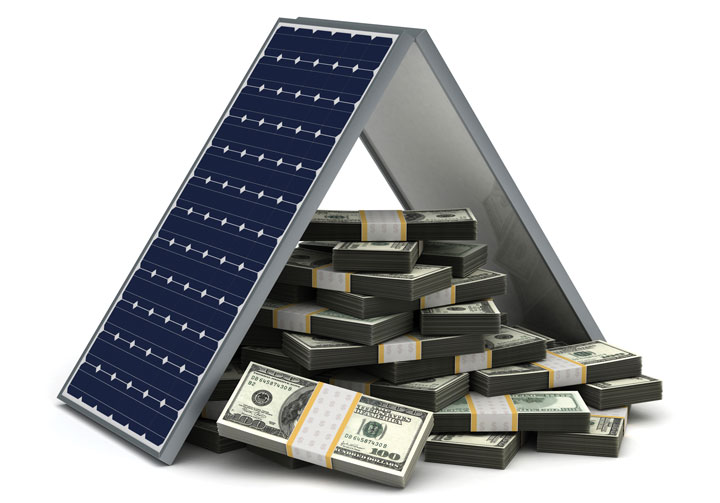An increasing number of solar developers are realizing they can use sale-leaseback financing to take advantage of tax incentives for solar installations, and in turn, reduce costs, conserve cash, increase profitability and enhance their brands.
Reducing energy costs is a major consideration for many businesses and government entities because they know that lower energy costs translate into improved profitability and cash flow, and investments in sustainability can add significant value to assets.
Developers such as Community Energy and Monolith Solar are using sale leasebacks to finance projects that include a power purchase agreement (PPA), allowing monetization of the tax benefits, inclusive of the investment tax credit and depreciation. In this structure, solar developers own and operate the system and sell the power to a third party.
The features of a smart sale-leaseback project include:
- Strong credit all around (developers, PPA offtakers, installers)
- Positive project cash flow
- Experienced engineering, procurement and construction management teams
- Tier 1 components
- Strong site control
- Solid PPA
- Strong incentives
- Quality operations and management plan/partner
Smart sale-leaseback programs allow developers to finance distributed solar projects that otherwise may not be financeable, as this financing structure scales down nicely, following industry trends of lower costs per watt.
Conserve cash, gain flexibility
Solar developers benefit from financing solar equipment acquisitions by preserving cash and credit lines for other uses. Here are some of the other benefits of financing solar capital expenditures:
- Potential tax benefits. Equipment financing may provide tax advantages by monetizing the Investment Tax Credit, utilizing Modified Accelerated Cost Recovery System (MACRS) and bonus depreciation benefits.
- Stimulus benefits. Additional savings opportunities may be available through solar renewable energy credits and grants.
- Flexibility. Whether it’s a tax or non-tax lease, payments can be structured to match budget requirements, with terms aligned with the solar equipment’s useful life.
- Reduced capital outlay. By bundling solar equipment with other costs, including design, engineering, development and installation, businesses can acquire what they need with no money down and one fixed monthly payment. In most cases, 100 percent financing can be provided.
- Be known as a green leader. A solar system is not only a wise financial investment but also supports environmental values. Financing allows organizations to demonstrate commitments to promoting clean energy and reducing their carbon footprint.
10 questions to ask
In the acquisition of solar equipment, it’s important to weigh all available options. Here are 10 questions to consider:
Before
1. Do I need construction financing?
2. Does the installer have the experience, financial strength, qualified staff and bonding capacity to complete a successful project?
3. Does the project use Tier 1 components?
4. Is the PPA financeable?
5. Does the energy offtaker meet a finance company’s credit requirements, i.e. investment grade credit rating?
6. Do I have good site control?
During
7. What are the lease terms, including tenor, monthly lease payment and end-of-term options?
8. What are my other financial obligations for the equipment (such as insurance, taxes and maintenance) during the financing period?
9. Can I purchase the system during the lease term?
After
10. Can I return the equipment or renew the lease?
With answers to these questions, solar developers can effectively utilize solar equipment financing to conserve cash and build their balance sheets by leveraging PPA revenues and retaining the entire revenue stream, as opposed to selling off the PPA.
Choosing a Finance Partner
Seek out a financing partner who can accommodate businesses with customized payments to match budgetary requirements. Make sure the financing company has solar lease financing experience, understands solar project needs, takes the time to ask questions and listens to your responses.
Above all, look for a financing company with a track record in renewable energy and a willingness to customize leasing solutions to help solar developers finance their projects.
Doug Beebe and Luis Gutierrez are VPs of energy finance for the eastern and western United States, respectively, for Key Equipment Finance.
— Solar Builder magazine
[source: http://solarbuildermag.com/financing/why-sale-leasebacks-solar-ppa-commercial-financing/]


Leave a Reply
You must be logged in to post a comment.